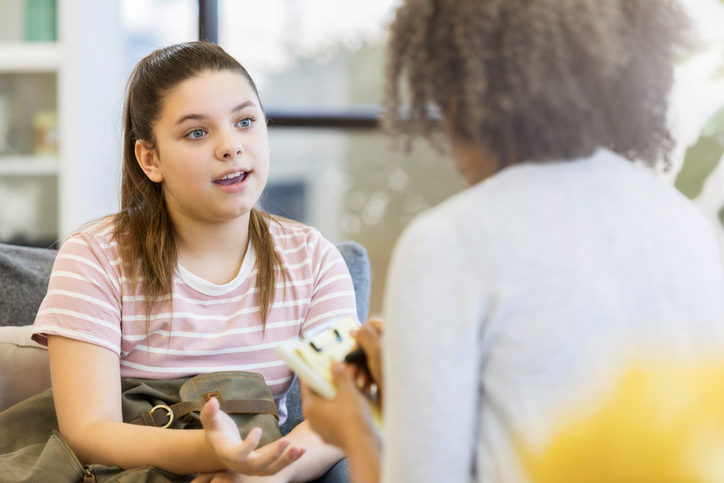Preparing for court
The more prepared you are for court, the less worried you will be and the easier it will be to give your best evidence.
This content has been written for children and young people. If you’re looking for information for over 18s, visit our Going to Court information.
Everyone tries to make sure that cases involving young witnesses are dealt with as quickly as possible, but some cases still take a long while to come to court. The police and the Witness Care Unit will keep in contact with you to tell you about any delays in the case, the date and time of the trial, and whether you still need to give evidence. Sometimes cases don’t go to court; the police should be able to tell you why that has happened.

The Witness Care Unit will contact you before the trial to find out what help and support you might want. It is their job to tell you when the trial will start and to give you information about being a witness.
Every court has a Witness Service who is there to give you information and support, and to help you get ready to give evidence. They can arrange for you to have a pre-trial visit to the court, so that you know where everything is, and where you and other people will sit in the courtroom, or while you’re waiting to give your evidence. They can also arrange for you to try out any of the special measures, such as the TV link.
The police will apply to the court for special measures that can help you. Tell them what you think about using special measures, and the police will try to arrange for them to be there for you to use during the trial.
It’s a good idea to visit the court before the trial so you can have a look round and ask any questions that you have.
You can talk to your witness supporter to arrange this, and you will be able to visit with a family member or another supporter. You can see the waiting room, look around the courtroom and find out about the ways to help you give evidence (called special measures). You should be able to test out the TV link (which allows you to give evidence away from the courtroom), and see screens in place in the courtroom (which prevent you from seeing the defendant).
You can ask questions about anything you’re not sure about or that is making you nervous; a pre-trial visit can really help if you are worried about the trial.
In cases involving young witnesses, the police often make a visual recording of your statement, rather than writing it down. The police and the court may call this recording ‘Achieving Best Evidence’, or ABE. If that happens in your case, you will be given the chance to watch the recording in the week before the trial. This is to help you remember what you said at the time you were interviewed, which could be several months ago.
However, for some witnesses watching the visual statement can be upsetting, so it’s best to watch it with the police officer or another other adult who is supporting you – as long as they are not also a witness in the trial.
If you have made a written statement you will be given a copy to read on the day of the trial.
If there is anything you still have not told the police, or you’re worried that you may have told different things to different people, talk to the police or ask your witness supporter to help you meet with the police. Don’t worry – it may be that you were scared or confused, and you won’t get into trouble. But it’s important that you tell the police before the trial starts.
Hopefully you will have had a pre-trial visit to a court, and you will know where the court is and how you will travel there or where to park.
You should speak to your parent or carer about travelling to the court in plenty of time in case there are traffic problems, you don’t want to be in a rush
You may have to wait quite a while in the waiting room before you give evidence, and it may seem like a long day, so it’s best to wear something smart but comfortable.
Also take something you like to play with to pass the time. Perhaps take an electronic hand held game console or your phone (but remember the charger too!).You may have a book you like to read or puzzles you can do.
Take some food and a favourite drink. There should be tea and coffee available in the waiting room, but if you like drinking soft drinks, you could take one with you. You may be hungry while you are waiting, so some snacks and sandwiches would be a good idea. However, it is best to check with the court first as some courts don’t let you take your own food or drink but instead have a café inside where you can get snacks.
Your friends at school or college don’t need to know that you are going to court, but it’s a good idea to tell your teacher as you will need time off from school. But you don’t need to tell your teacher everything that happened – just that you need time off. Your teacher can also help you catch up with work you have missed and give you some emotional support. Your witness supporter can help you talk to school if you want them to.
If you have any other worries at all about going to court, talk to your witness supporter, or someone else you trust – maybe your parents, a teacher or the police. They will be able to help you.
